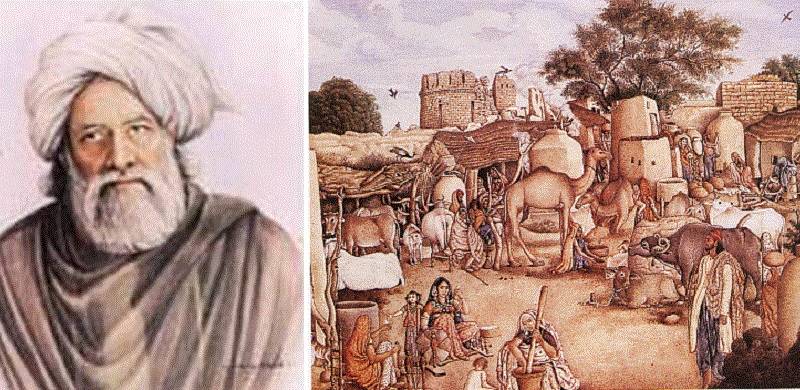
The objective was to own the marginalised groups and mainstream them. Although many Sufis were Syeds, they still negated the idea of class stratification in human society on any grounds. Among them was the ever-green powerhouse of folk wisdom, a Punjabi poet Syed Abdullah alias Bulleh Shah (1680-1758) of the Qadiri-Shattari Sufi order (silsilah). He opened his eyes to a Syed family. In South Asia, Syeds are treated as a privileged class due to their claim of descent from the Prophet (PBUH). Bulleh Shah challenged the traditional authority and social hierarchy by propagating the real spirit of Islam based on the Quran’s Surah Al Hujurat, Ayat no 13: “O mankind! We created you from a single (pair) of a male and a female, and made you into nations and tribes, that ye may know each. Verily, the most honored of you in the sight of Allah is who has At-Taqwa (the pious). And Allah has full knowledge and is well acquainted with all things.”
Shah boldly contested the social stratification and status quo through his writings and actions, which is the core spirit of Islam; for instance, the Prophet (PBUH) focused on and talked about the marginalised groups in Makkah, i.e. women and slaves. In general, some of the most important people in the progress of Homo Sapiens took a firm stand to support the neglected segments of society to attain collective progress. His murshid (spiritual mentor) belonged to an agricultural caste or vegetable gardening Arain, considered a lower caste than Syeds. When Shah became his disciple, his family confronted and opposed it. In response to the criticism, he wrote:
“To counsel Bulleh
His sisters and sisters-in-law have come.
“Pay heed to us
And give up mixing with the low-caste Araeen. You are a scion of Ali (AS), and the Prophet (PBUH),
Why must you shame our fair clime?”
Those who call me Syed
Are destined to hell made for them; Those who call me Araeen
Have the swings in heaven laid for them.
The low-caste and the high-caste
Are created by God who cares not for family; He disregards the beautiful
And cherishes the not-so-comely.
If you wish to enjoy the glory of the Garden, Go and serve the Araeen.
Why bother about Bulleh’s caste?
Obey the command that comes from Saeen”
Bulleh Shah write a negation of the caste system, and discrimination based on clan, ethnicity, occupation-based caste and colour, to dilute the sectarian identities and to unveil the inner soul. In a nutshell, the idea was that no one was inferior or superior before God.
Mullah and torch-bearer come of one stock,
Giving light to others, themselves in the dark
He laments how the masses indulge in blind following and uncontested loyalties in socio-politico-economic spheres.
From the semi-literate I run, oh how I run!
For they are the biggest fools under the sun
Historically, a segment of so-called Sufis exploited the status quo by seeking titles, self-proclaimed superiority, financial perks and political power during Mughal and British rule. By doing this, they denied the spirit of Sufism and strived to strengthen the notion of social class divisions in Indian Society. Their followers did the same, and antagonism, polarisation, and hatred among people began to prevail. The same created elite dominated the popular and collective interests of the masses. In the words of Bulleh Shah:
“You study night and day,
While life is ticking away,
When all you need is an A
Enough of learning, Friend
The books you read and write,
Reach up to a height,
They have quite shut off the light,
You know where you wend”

